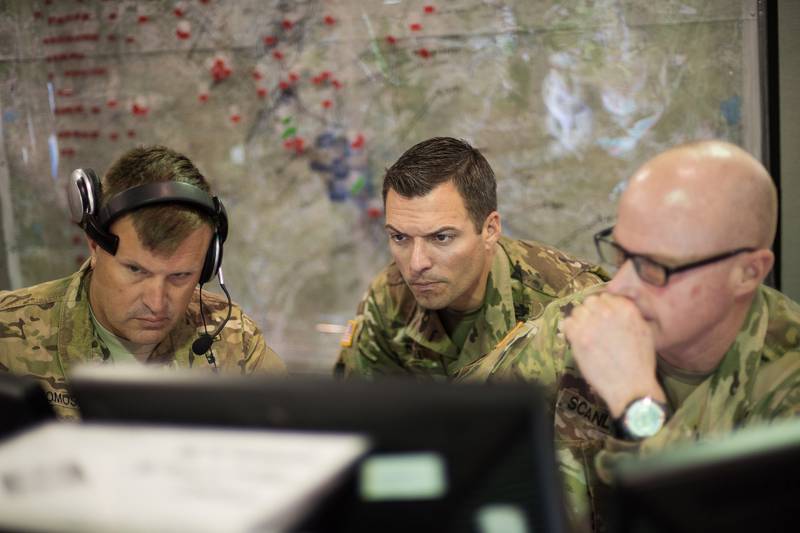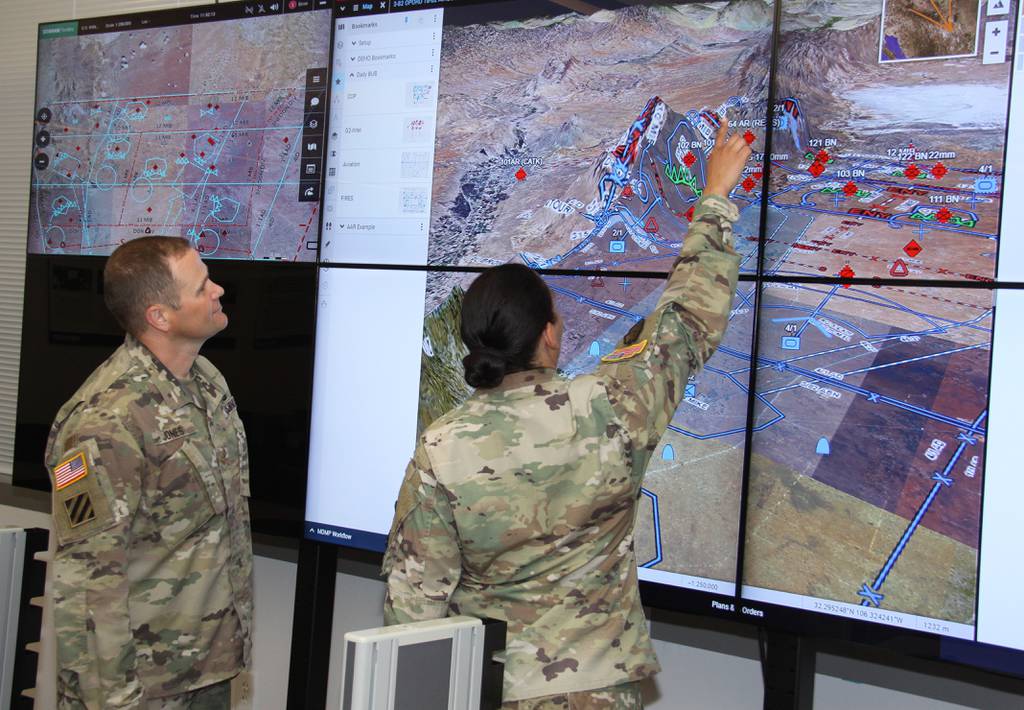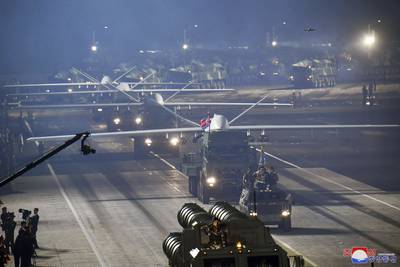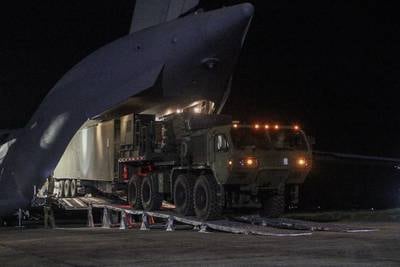The Army’s new command post tool received lukewarm results from the Pentagon’s weapon testers, though the Army asserts that deficiencies have been fixed.
In its annual report, the Director Operational Test and Evaluation office, or DOT&E, stated that the Army needed to make several improvements to the Command Post Computing Environment in the way of software, hardware, cybersecurity and maintainability.
CPCE is a web-enabled system that will consolidate current mission systems and programs into a single-user interface.
The DOT&E report assessed that CPCE was not operationally effective, suitable or survivable in a cyber-contested environment. While soldiers found the CPCE concept to be an improvement over existing systems, the report notes that CPCE didn’t support leaders and soldiers with sufficient scalability, collaboration or operations management.
RELATED

DOT&E recommended the Army improve hardware and software on CPCE to address deficiencies, improve cybersecurity, demonstrate joint and coalition interoperability and improve training as a means of improving maintainability that will decrease reliance on contractors in the field.
The Army has maintained that the approach it is using for CPCE — an agile and development operations approach in which software and fixes are iterated in an evolving manner — means that CPCE will always be improving based on upon user feedback gained through operational and developmental testing.
“We tested a version of Command Post Computing Environment last fall; by the time the test report was written we iterated it four times. Even between now and what we will deliver in the Defender ’20 next year to the 1st Cavalry Division, we’re going to turn the crank again and make that software even better," Maj. Gen. David Bassett, Program Executive Officer for Command, Control, Communication-Tactical, told reporters in October.
The Army also told C4ISRNET that it has fixed the majority of the issues DOT&E identified in its report.
In November 2019, the Army conducted a follow on developmental test to address concerns with software sustainability and coordinated the test with DOT&E, Paul Mehney, director of public communications for PEO C3T, told C4ISRNET.
Servers have been replaced, enabling greater capacity for CPCE. Those upgraded servers will be fielded to units going to Europe for Defender 2020, which will also be used to gain useful insights and improvements for CPCE.
The Army has also upgraded the software referenced in the report, maintaining the software is now stable.
CPCE is slated to be formally included as part of the first delivery of the Army’s modernized network kit to four infantry brigades under what’s known as capability set 2021.
Mark Pomerleau is a reporter for C4ISRNET, covering information warfare and cyberspace.








